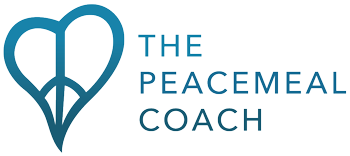In all of the books I’ve read, forums I’ve found, and eating disorder experts I’ve questioned, I have yet to come across any clear and encouraging answers as far as how parents can successfully feed their anorexic teens. There isn’t an approach that calculates exactly how to get our kids to eat. There is no clear prescription for the amount and type of food. There isn’t a treatment that everyone in the eating disorder field agrees upon as the way to guarantee recovery. There is a lot of information out there, but it is up to the parents of the anorexic to figure out within that information what to do and how to do it.
Since evidence-based research shows higher recovery rates for adolescents who receive FBT (family-based treatment), my husband and I decided that was what we were going to do for our daughter, and we thought we’d figure out how by finding experts to help us. Then we discovered that there was not a local therapist who was trained and experienced with FBT. We were struck with the realization that as her parents, unless we found a residential treatment center or she was hospitalized, that we were completely responsible for getting her to eat.
The books assured us that we would know how much to feed her, and that if we did it compassionately, we could restore her weight in a relatively short amount of time. Reading about the descriptions of an anorexic’s resistance to eating in no way prepared us for what the resistance would look like or feel like to us. Reading about giving her the food that she needed to restore her weight in no way prepared us for how much food she needed and how much fat we needed to pack into that food to heal her body and her brain.
Regardless of the books you read, or the treatment model you choose for your daughter, if she is medically stable enough to be at home, you will be feeding her. Those of us who consider ourselves compassionate, calm, consistent parents will read that those are the qualities we need to get her to eat, and we’ll think that we will get right to doing it. Those of us who are confident that we have always known what and how much to feed our kids will think that when the book says that we know what to do, that we really will.
Wrong! Those platitudes are nice, but they are not as clear as parents would like when they are faced with a child who is continuing to lose weight despite their best efforts. I had ample experience competently feeding my kids the types and amounts of food they needed. I also had plenty of experience compassionately parenting my kids. But, none of my kids had ever been anorexic.
Add anorexia and the extreme behaviors that anorexia causes, and none of my parenting skills seemed to apply. Anorexic kids don’t behave like kids who are not anorexic. I might as well have been trying to fly an airplane with the advice that I would know what to do because I had been in an airplane many times.
Would you want me to pilot your plane knowing that that was the extent of my experience? I wonder how confident and calm I would feel about being responsible for people’s lives as a completely inexperienced pilot. Yet it is suggested that parents should just act as if they are confident and calm when they are feeding their anorexic teens, even if they aren’t feeling confident and calm.
Have you tried acting confident and calm when your daughter is refusing to eat, accusing you of wanting to make her fat, saying over and over again how much she hates herself, crying, throwing food, putting her head down on the table, having anxiety attacks, and acting nothing like the girl that you have always known how to parent up until now?
There is a reason that acting confident when we don’t feel confident doesn’t work. The reason it doesn’t work is that we don’t believe in our ability to feed her when we are facing her anorexic behaviors. If you are a mom who can act confident enough to convince your anorexic daughter to eat (even though you are terrified of the way your daughter is behaving) you deserve a best actress award. I consider myself a good mom, but I am not a very good actress.
Trying to force confidence simply doesn’t work. But we will need all of the confidence we can get to feed her what she needs to eat to recover. The reason parents can’t fake confidence when we are feeding our daughters is the same reason we can’t repeat a positive affirmation to ourselves and expect it to change our lives. We don’t automatically feel better when we repeat an affirmation because we don’t believe the affirmation. We don’t feel confident when we feed our anorexic daughters because we don’t believe we know how to get her to eat when faced with her anorexic behaviors.
The experience of feeding my daughter and learning from the failed attempts at overcoming her resistance helped me discover what I think is the missing link in all of the descriptions I’ve read on how to get her to eat. I was able to figure this out by applying the tools I learned while training to become a certified life coach. I believe I found a way to tap into the power all parents have to help their kids:
The secret to successfully feeding your anorexic teen is using what you already believe to create the confidence you need to get her to eat.
Right now, you may not feel confident about getting her to eat, or about how much or what type of food to give her, but what do you believe that can create the feeling of confidence you need to get the job done?
For example:
Have you always been able to remain calm in a crisis?
Do you willingly take on challenges?
Would you do anything to help your daughter?
Are you tenacious?
Have you been able to figure other things out when your kids needed you?
Use the beliefs you have about yourself as a parent or about yourself in general to get to a feeling of confidence. Some examples that I used that created confidence in me:
I am the best person to support her through this.
I can always figure out what to do.
My love for her is stronger than the anorexia.
I am capable of doing whatever it takes to help my daughter.
You can go through the same process to feel however you want to feel to show up as the parent you want to be for your daughter by first asking, “how do I want to feel?” It helps tremendously to separate your feelings about the anorexia from your feelings toward your daughter. You can be angry, confused, scared, overwhelmed, helpless, sad, or anything else about the anorexia, but bringing those feelings to the table when you are trying to get her to eat will not be useful to you or to your daughter.
Once you have decided on a belief that creates your desired feeling, plan to focus on this belief during the 6 times a day when you feed her: breakfast, lunch, dinner, and three snacks. Notice how differently you act when you dial into an authentic feeling by using a belief that you already have. When you can be the parent that your daughter has always trusted instead of joining in her fear and anxiety, it will make a difference for you, and in turn, it will make a difference for her.
If you would like to learn more about how to apply this and other tools to the successful feeding of your anorexic teen, email me at jenni@peacemealcoach.com for a free 20-minute mini coaching session.






